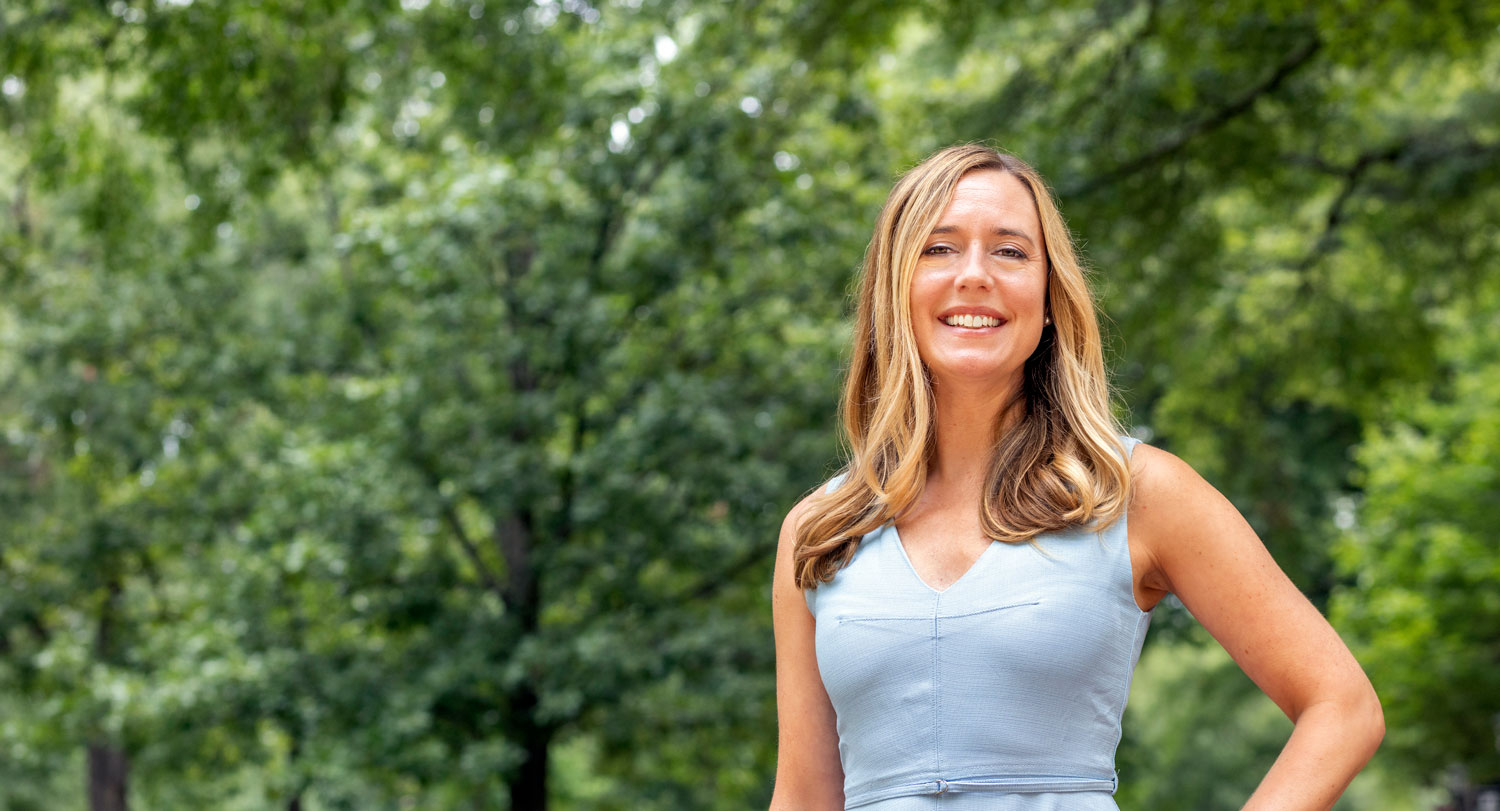
For Christina Cox, teaching pharmacy isn’t about reciting drug names or memorizing dosage charts. It’s about storytelling, real-world simulations and helping students connect their classroom experience with the clinical decisions they’ll one day make under pressure.
For her work in the classroom, Cox has earned a Garnet Apple Award for Teaching Innovation.
An associate professor in the College of Pharmacy, Cox has been teaching at USC for more than 14 years. Her background as a practicing pediatric pharmacist in intensive care units informs every part of her teaching, from traditional lectures to clinical rotations.
“I always found teaching a natural part of my own learning — it really enhanced my ability to truly understand material,” Cox says. “Teaching allows me to be creative, to use stories and real-life cases and to help students see the ‘why’ behind their learning.”
Cox’s journey into academia began during her fourth year as a pharmacy student at USC, when she completed an academic rotation and found herself energized by the classroom. “I loved being able to share information and be part of the learning process,” she says. “It also helped me learn as a student.”
Now, Cox brings that same enthusiasm to her own classroom. Her teaching draws heavily from Ernest Boyer’s model of scholarship — emphasizing integration, discovery, application and teaching — and she mixes classroom education with a heavy dose of clinical experience. In her pediatric pharmacotherapy elective, students are assigned a “patient” to follow throughout the semester. Each week, new developments occur — dehydration, emergencies, even simulated pediatric codes — and students must respond in real-time with care plans and medication preparation.
“The process of learning and having the awareness and desire to see problems from all angles with well thought out decisions is vital to our education and continued success in this profession."
“They then teach the class through explaining their recommendations and thought process,” Cox says. “I act as a facilitator to ask questions and work through any incorrect responses/recommendations. Students are invested in the material; their questions are on a higher level and incorporate more critical thinking skills than the traditional didactic lecture.
“They are telling the story of their patients and experience and thus solidifying the learning process.”
In one example, students created a mock pediatric emergency during class and practiced drawing up and administering life-saving medications.
“The process of learning and having the awareness and desire to see problems from all angles with well thought out decisions is vital to our education and continued success in this profession,” she says.
In another class, Cox required students to research specific health care topics and interview experts for podcasts. Students lead interviews, produce podcast episodes and develop community engagement initiatives tackling real-world issues like food insecurity and access to pediatric immunizations.
“The podcasts were an innovative method that fostered student learning and will continue annually regarding conversations on health care equity,” Scott Sutton, chair of clinical pharmacy and outcomes sciences, wrote in recommending Cox for the Garnet Apple.
Whitney Maxwell, associate director of experiential education, says Cox uses a variety of tools to engage her students.
“Throughout the entire 14 years that I have known her, Dr. Cox has been a favorite of students, who are always impressed by her love for the pediatric population she teaches about,” Maxwell wrote in recommending Cox for the Garnet Apple. “She goes the extra mile to teach students high level critical thinking, clinical reasoning, communication and counseling skills that are critical to ensuring the safety of the vulnerable pediatric population whom she serves daily through her clinical practice at the Prisma Health Richland Children’s Hospital.”
Cox also has mentored dozens of students in research projects, leading to national conference presentations and peer-reviewed publications. For her, student success is measured in part by their ability to teach.
“When students on clinical rotation teach the medical team about medications or complete bedside medication teaching with caregivers at discharge, it is the culmination of discovery, integration and application.”